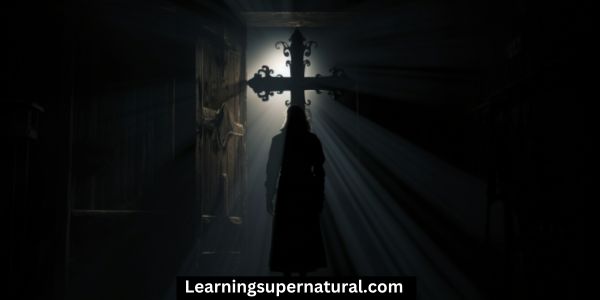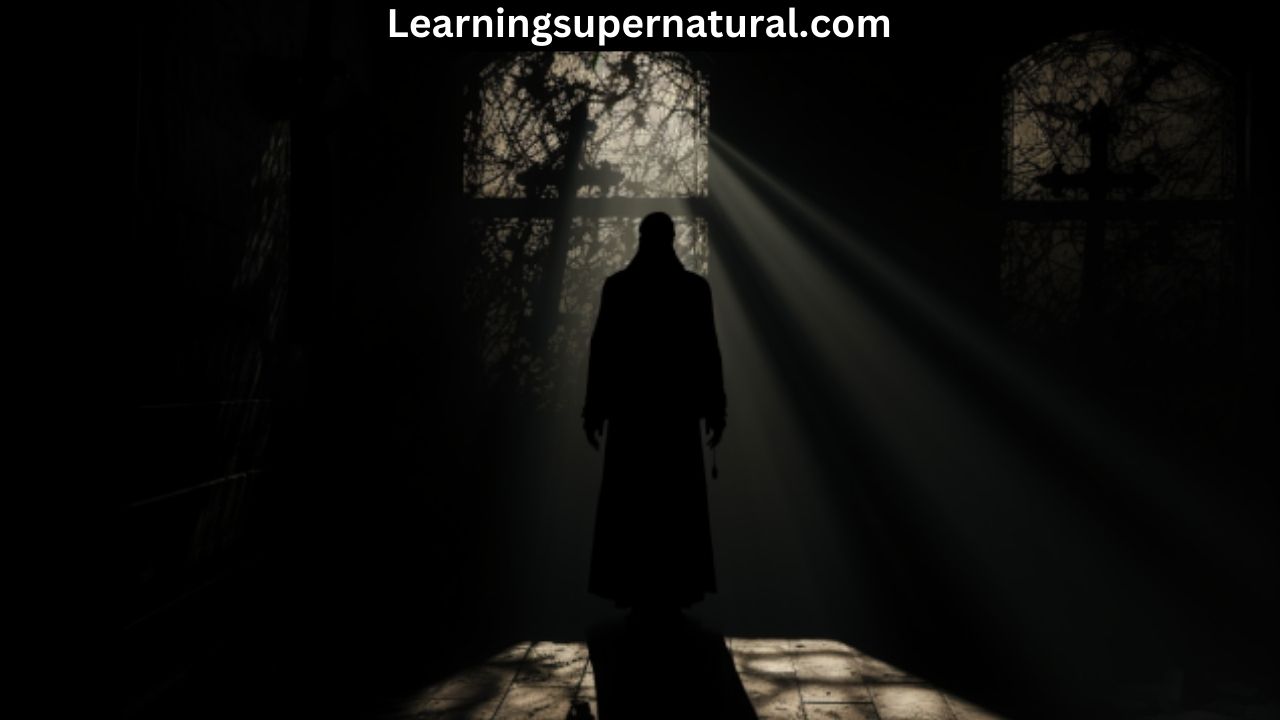Exorcisms have been around for thousands of years and are still practiced in many cultures today. Though some may think of them as myth, there is plenty of evidence to suggest that real exorcism stories do exist.

In this article, we will explore the testimonies from those who have experienced an exorcism firsthand and provide analysis on what these experiences can tell us about the phenomenon.
Exorcists often claim their work has supernatural origins, but scientists continue to investigate the underlying causes behind such events.
We’ll look at how psychological factors might play a role in why or how someone experiences an exorcism and discuss the implications of these findings. Read on to learn more about real exorcism stories.
History And Practices Of Exorcism
Exorcism is an ancient practice that has been used in numerous cultures across the world for centuries.
According to a survey conducted by The Pew Research Center, nearly half of Americans believe that demonic possession can occur and needs to be exorcised.
This statistic reflects how alternative beliefs regarding demons and spirits still hold cultural relevance today, even if they are not always accepted by mainstream society.
The accounts of exorcism experiences vary from person to person but generally involve a spiritual practitioner performing rituals or invoking divine power in order to drive out evil forces from within a person or place.
These stories often take on unique forms depending on the culture into which it is inserted – ranging from traditional Christian services involving holy water and prayer, to shamanic practices relying on herbs and incantations.
To get an insight into this fascinating topic further, let us explore some real-life examples of exorcisms that have taken place around the world.
Accounts Of Exorcism Experiences
Exorcism has been a part of religious practice for centuries, and it is often used to treat cases of demonic possession. While there are some documented instances of successful exorcisms that have occurred throughout history, many reports remain anecdotal.
Many accounts from those who claim to have experienced an exorcism describe feelings or experiences associated with being possessed by a demonic spirit, such as speaking in tongues or having their body take on unnatural physical characteristics.
These stories provide us with an insight into the role religion plays in our understanding of supernatural events and how people view these phenomena through the lens of their own beliefs.
Although the idea of demonic possession may be linked to traditional spiritual practices and belief systems, there is still much debate about the actual cause behind reported paranormal activity.
With modern advances in psychology and medicine, we can now begin to explore the potential psychological factors at play when examining reports of possession or other unexplainable occurrences.
It’s important to consider both external influences like religion and internal influences like mental health when trying to understand why certain individuals experience what they believe are spiritual attacks.
As we move forward in this area of research, it will be interesting to see if any correlations can be drawn between religious beliefs and psychological states which could lead to further explanations for mysterious events such as possessions.
Moving ahead, we’ll examine the role of psychological factors in determining whether or not someone might actually be demonically possessed.
The Role Of Psychological Factors

Never have the mental health implications of exorcism been so profound.
Exorcisms are often presented as a spiritual or supernatural ritual, but they can also have devastating psychological effects on those involved.
Mental health and religious beliefs must be taken into consideration when exploring cases of real-life exorcisms; this is especially true in contemporary society where many cultures still accept such rituals without question.
For individuals who experience an actual exorcism, it can lead to long-term trauma with disastrous consequences for their mental wellbeing.
Many suffer from post-traumatic stress disorder (PTSD) due to these experiences, characterized by fear, anxiety, nightmares, and flashbacks.
There is an urgent need to recognise how important it is to provide support and treatment for those affected by such occurrences – not just physical safety during the ritual itself but emotional and psychological care afterwards too.
With that said, we now move onto scientific studies conducted on exorcism…
Scientific Studies On Exorcism
It is evident that psychological factors play a significant role in the experience of an exorcism. However, it is also important to consider scientific studies and research as a means for understanding this phenomenon more deeply.
In terms of religious influences, supernatural beliefs and their implications on exorcisms, there are several key aspects to be considered:
- The Role of Religion:
- Religious interpretation of possession symptoms
- Beliefs about demonic entities
- Prevalence of spiritual healing practices
- Supernatural Explanations:
- Views on the existence of paranormal forces
- Attitudes toward occult rituals and magical powers
- Scientific Evidence:
- Psychological theories behind reports of possessions
- Neurobiological explanations for behavior changes during exorcisms
These three topics provide greater insight into how individuals perceive different forms of possession and how these varying perspectives can affect the outcomes associated with such experiences.
Moreover, by better understanding the multiple layers at work in any given case involving an individual being “possessed” or “cursed” creates potential opportunities for providing support or relief from whatever suffering they may be experiencing.
With this knowledge comes further implications about related topics such as mental health treatments, cultural norms and psychotherapeutic approaches which could offer new directions for addressing cases moving forward.
Looking ahead then, a closer examination into the implications of exorcism research provides invaluable information for practitioners in various fields within psychology today.
Implications Of Exorcism Research

‘Where there’s smoke, there’s fire,’ and such appears to be the case with exorcism. The practice of casting out demons or evil spirits has been around for centuries, but it is only in recent years that its sociocultural impacts have become more apparent.
Research into this realm reveals a complex array of supernatural beliefs that can profoundly shape people’s behavior and experiences — not just those who undergo an exorcism themselves, but also the family members and communities they are part of.
The implications of these findings go far beyond any particular faith tradition or belief system; rather, they point to a deep spiritual need among many individuals to move beyond their own physical experience and find solace in something greater than themselves.
By understanding how exorcisms affect believers and nonbelievers alike, we gain valuable insight into the ways our world works today. It may ultimately help us bridge divides between cultures where superstition serves as one of the most powerful forces at play.
Frequently Asked Questions [FAQs]
What Is The Difference Between An Exorcism And A Deliverance?
Exorcism and deliverance are two separate practices that involve spiritual warfare.
An exorcism is a process of directly confronting demonic spirits in order to cast them out from those who have been affected by the power of possession. The Catholic Church, for example, requires an official decree before proceeding with any type of exorcism ritual.
On the other hand, a deliverance involves evicting demons through prayer rather than direct confrontation. It’s seen as more of a passive practice which relies on faith and trust in God’s power to remove evil forces without the need for physical interaction or contact.
In both cases, it can be argued that there is great potential for spiritual healing when one successfully engages in either form of spiritual warfare against demonic possession.
Are Exorcisms Still Performed Today?
Yes, exorcisms are still performed today!
Just like in the days of old, modern-day spiritual warfare involves casting out evil spirits and demonic possessions.
Through intense prayer and faith, many who have been affected by dark forces turn to religious leaders for an exorcism.
It is a powerful moment when people come together to engage in spiritual battle against the darkness in order to free their loved ones from its clutches.
By invoking divine powers with phrases such as ‘In Jesus’ Name,’ one can experience this ancient ritual firsthand – proving that while times may change, some traditions remain timeless.
How Should One Prepare For An Exorcism?
Preparing for an exorcism can be a complex process, and one should seek both spiritual guidance and psychological counseling before going through with such a ritual.
It is essential to understand the potential physical and mental effects of this procedure in order to adequately prepare oneself.
Researching what type of spiritual guidance would best suit one’s needs as well as any possible psychological side-effects are important steps that must not be overlooked.
Additionally, it’s beneficial to have support from family members or close friends during the preparation period, so that they may provide emotional comfort if needed.
Are There Any Risks Associated With Performing An Exorcism?
Performing an exorcism is a serious spiritual endeavor that should not be taken lightly.
Not only can it put the practitioner at risk of facing off against powerful demonic manifestations, but it also requires significant preparation in order to ensure safety and success.
Engaging in such spiritual warfare without proper knowledge or protection may lead to dire consequences for both the person performing the ritual as well as any bystanders present during the process.
Therefore, anyone considering participating in an exorcism must understand the risks associated with this complex yet potentially rewarding practice before proceeding.
How Long Does An Exorcism Usually Take?
The length of an exorcism ritual can vary greatly, depending on the level of spiritual warfare involved and whether or not a mental illness is present.
Generally speaking, most exorcisms take anywhere from one to three hours; however, there have been cases where it has taken much longer.
An experienced practitioner will be able to assess the situation and determine how long the process may take in order for it to be successful.
Conclusion
Exorcism is a fascinating and sometimes misunderstood practice.
It’s important to understand the differences between an exorcism and deliverance when preparing for one.
Though there are risks associated with performing an exorcism, it can be successfully completed in anywhere from hours to days if done properly.
As they say, ‘an ounce of prevention is worth a pound of cure.’
Before undergoing an exorcism, make sure that you’re fully prepared and aware of all safety procedures so that your experience goes as smoothly as possible.




